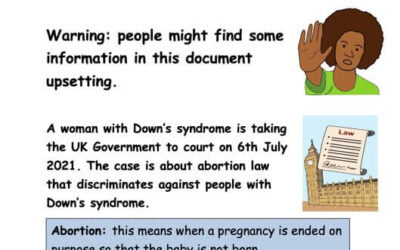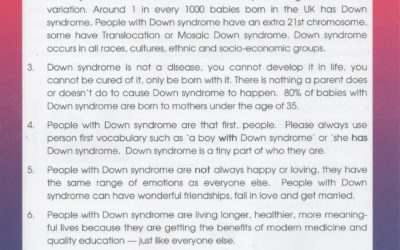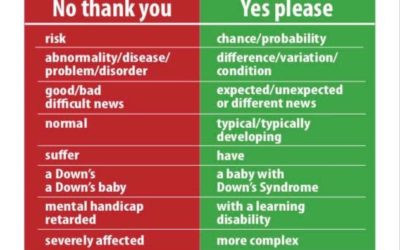Most women whose babies are diagnosed with Down’s syndrome end the pregnancy. But with a more accurate test on the horizon, a group of parents want to change perceptions.
It was a cold February Sunday on a busy maternity ward when Caroline White found out her baby had Down’s syndrome. Seb, Caroline’s first child, had been born the day before, swollen and blue. He wouldn’t latch on. He slept and slept, and although no one had mentioned anything, Caroline had a nagging feeling something wasn’t right.
That Sunday, while she and her husband, Simon, were sitting quietly with Seb, reading messages of congratulation, a midwife came to her bed, saying, “I’ve got a few concerns.” Caroline and Simon then waited two hours for a junior paediatrician. “He said, ‘There are a few things which could mean Seb has a chromosomal abnormality,’” Caroline recalls. “I had no idea what that meant.” Later that evening, while Seb slept beside her, she read what the doctor had written in Seb’s notes and typed the phrases into Google: “mild hypotonia” and “flat features”. Up came page after page about Down’s syndrome.



